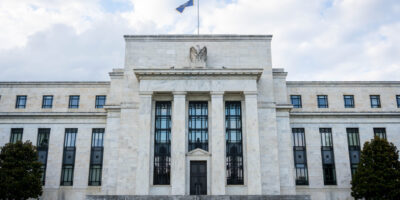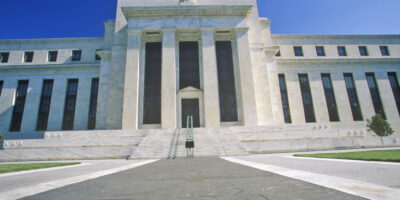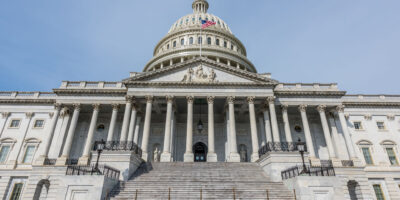The Sound Money Project was founded in January 2009 to conduct research and promote awareness about monetary stability and financial privacy. The project is comprised of leading academics and practitioners in money, banking, and macroeconomics. It offers regular commentary and in-depth analysis on monetary policy, alternative monetary systems, financial markets regulation, cryptocurrencies, and the history of monetary and macroeconomic thought. For the latest on sound money issues, subscribe to our working paper series and follow along on Twitter or Facebook.
Advisory Board: Steve H. Hanke, Jerry L. Jordan, Lawrence H. White
Director: William J. Luther
Senior Fellows: Nicolás Cachanosky, Gerald P. Dwyer, Joshua R. Hendrickson, Thomas L. Hogan, Gerald P. O’Driscoll, Jr., Alexander W. Salter
Fellows: J.P. Koning

“In 2021 they were looking for help from recovering supply chains. Now, they are looking for help from tight financial markets. It’s time FOMC members help themselves — or, God help us all.” ~ William J. Luther
READ MORE
“To the shame of two generations of economists-turned-policy-advisors, moral hazard is a fact of life. We don’t need to add permanent dollar depreciation to this mess.” ~ Alexander William Salter
READ MORE
“When it comes to fiscal follies, this time is different. Let’s not pass the buck. Instead, let’s make the necessary sacrifices to ensure the long-run integrity of the United States. Let’s plant the trees.” ~ Alexander William Salter
READ MORE
“Responsible students of monetary policy must vigorously resist the ‘powerless Fed’ myth. All it does is absolve central bankers of responsibility for what, on the basis of good theory and mounting evidence, is primarily their fault to begin with.” ~ Alexander William Salter
READ MORE
“The recent uptick in inflation is worrying, and the Fed needs to get a handle on the situation before higher inflation expectations become entrenched. But the Fed doesn’t need to take a sledgehammer to labor markets to ease the economy’s pricing pressures.” ~ Alexander William Salter
READ MORE
“Providing revenue to the state is one of the reasons (and, perhaps the primary reason) governments worldwide monopolize the issuance of high-powered money.” ~ Bryan Cutsinger
READ MORE
“Fed officials will likely continue tightening, and to a greater extent than previously projected. Their overreaction will not undo the damage of acting too late. It will make matters worse.” ~ Nicolás Cachanosky
READ MORE
“Although it may be difficult, the Fed must persevere. Elevated aggregate demand remains the best explanation for ongoing inflation. There is no reason for the Fed to ease its policy.” ~ Alexander William Salter
READ MORE
“How high rates will ultimately go depends on how inflation evolves over the next few months — and how quickly the Fed reacts to restore confidence in its longer term-inflation projections. The January PCEPI release marked a step in the wrong direction.” ~ William J. Luther
READ MORE
“Without a symmetric response to deviations from the target, the Fed’s so-called average inflation target will not produce 2 percent inflation on average. Instead, it will tend to produce inflation that exceeds 2 percent. That’s a far cry from price stability.” ~ Alexander William Salter
READ MORE
“Unconstrained politicians are likely to authorize more borrowing than they should. The debt ceiling might provide a useful—if somewhat limited—constraint against excessive borrowing.” ~ William J. Luther
READ MORE
“While relatively well-functioning governments have managed to find mechanisms that mitigate the problem, it seems unlikely that Argentina and Brazil will be able to prevent a tragedy of the monetary commons given their history of money and fiscal mischief.” ~ Bryan Cutsinger
READ MORE250 Division Street | PO Box 1000
Great Barrington, MA 01230-1000
Press and other media outlets contact
888-528-1216
press@aier.org
This work is licensed under a
Creative Commons Attribution 4.0 International License,
except where copyright is otherwise reserved.
© 2021 American Institute for Economic Research
Privacy Policy
AIER is a 501(c)(3) Nonprofit
registered in the US under EIN: 04-2121305